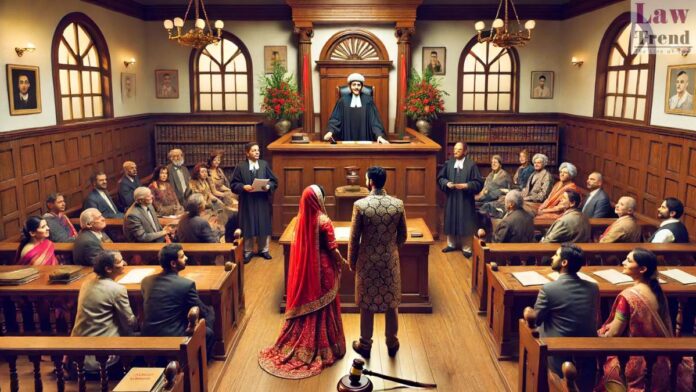In a ruling clarifying the finality of divorce proceedings and the validity of subsequent marriages, the Kerala High Court has held that a husband cannot seek to nullify his marriage on the grounds that his wife’s divorce decree from a previous marriage was granted a few hours after their wedding ceremony on the same day.
To Read More Please Subscribe to VIP Membership for Unlimited Access to All the Articles, Download Available Copies of Judgments/Order, Acess to Central/State Bare Acts, Advertisement Free Content, Access to More than 4000 Legal Drafts( Readymade Editable Formats of Suits, Petitions, Writs, Legal Notices, Divorce Petitions, 138 Notices, Bail Applications etc.) in Hindi and English.




